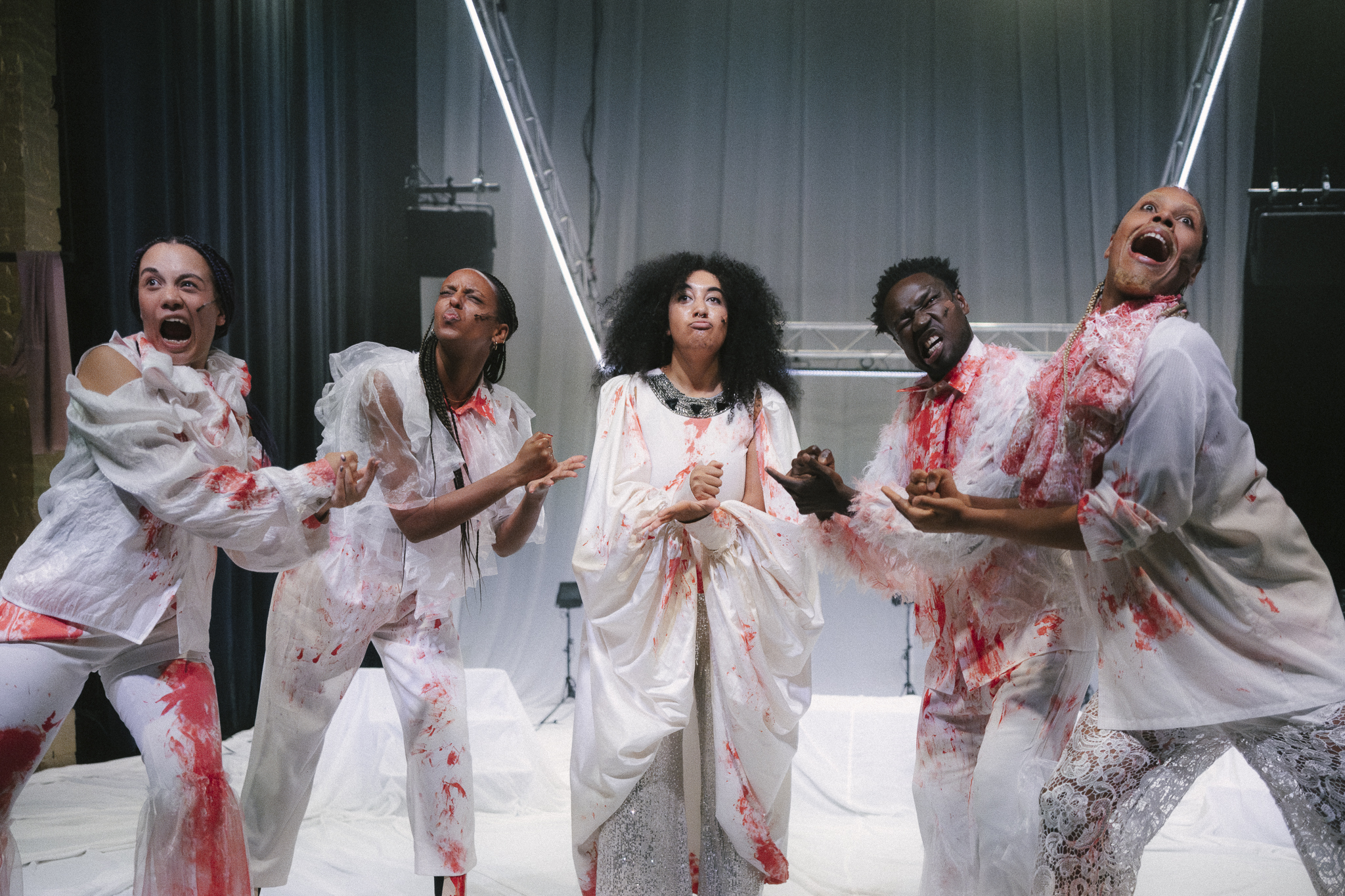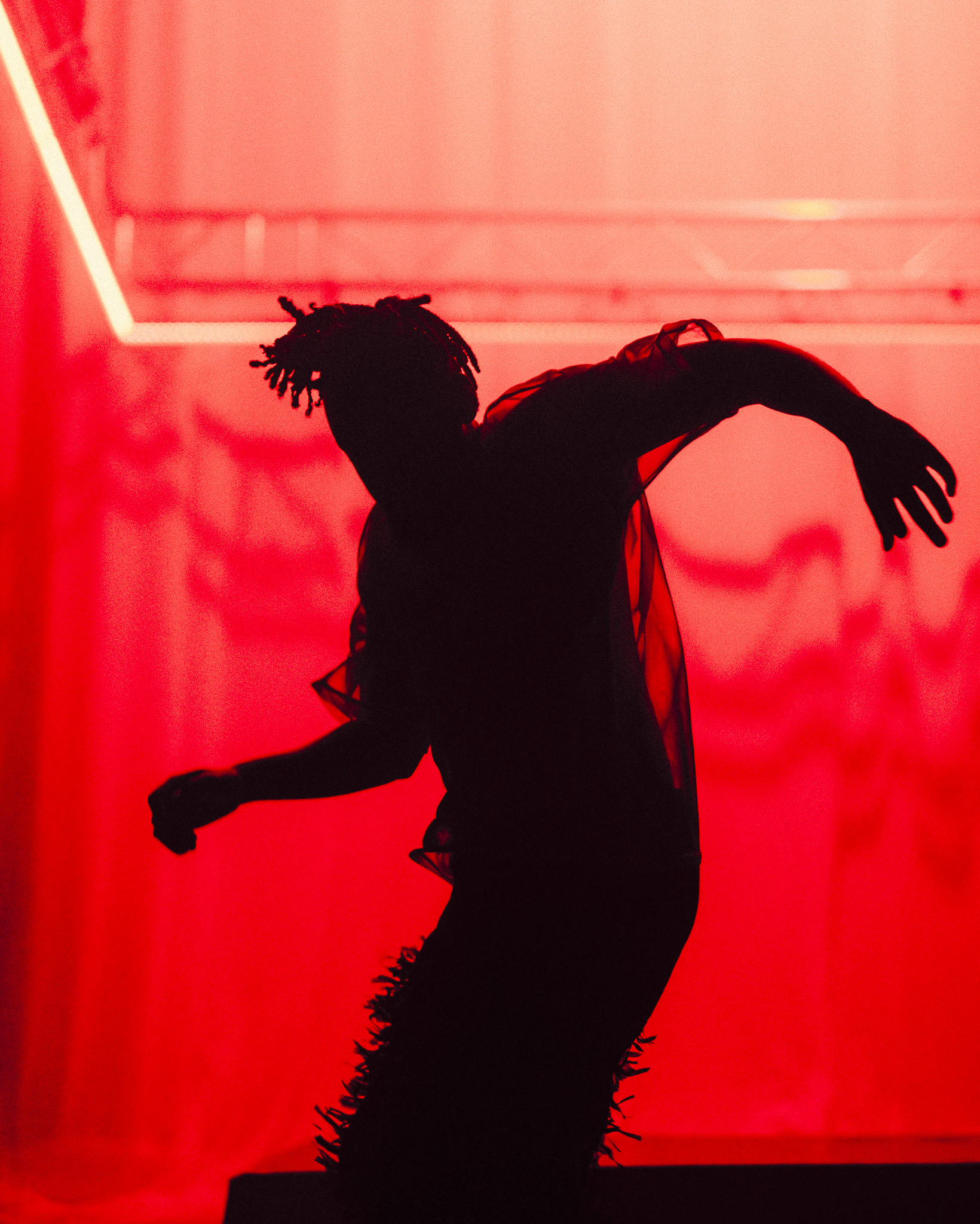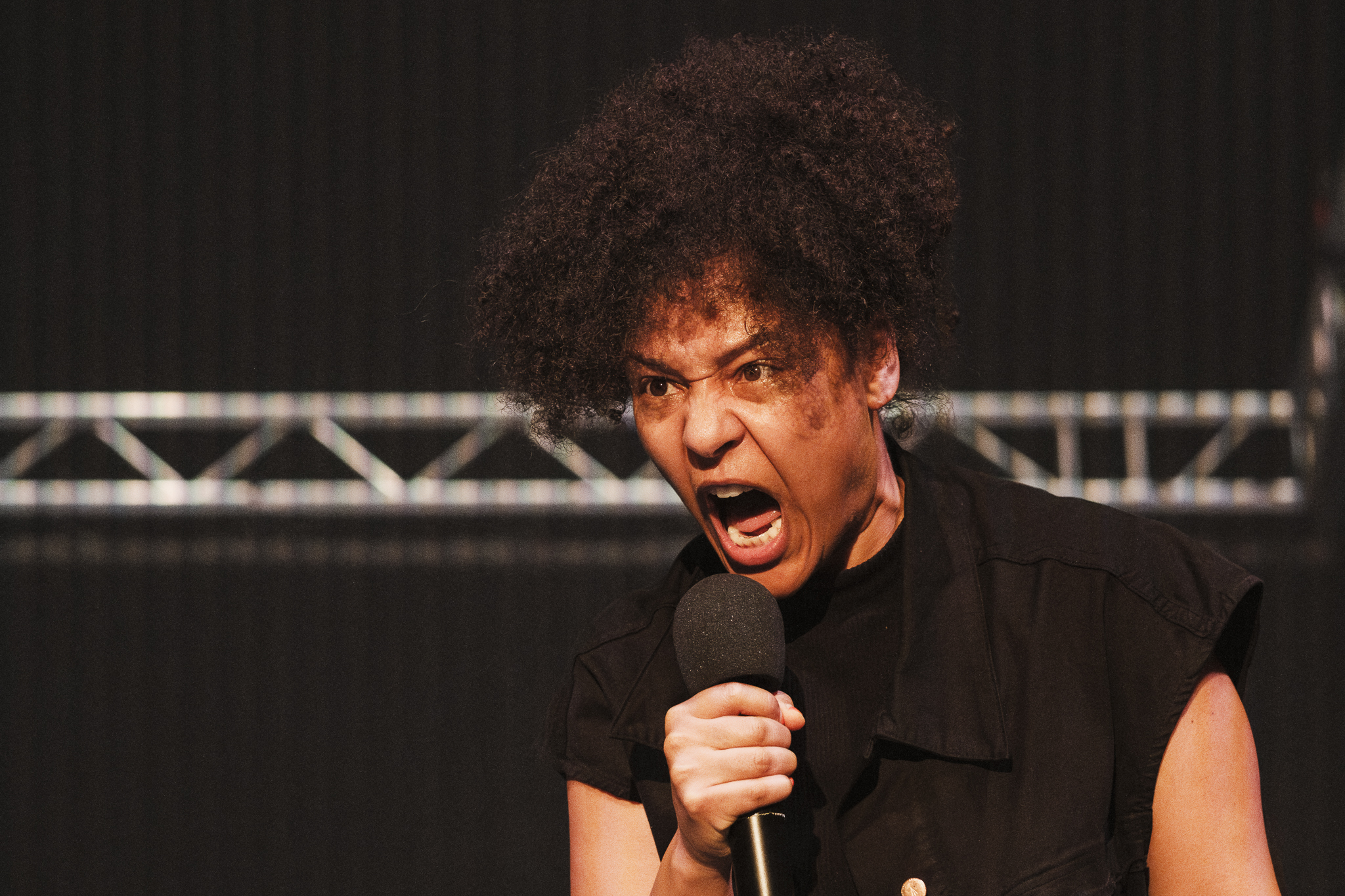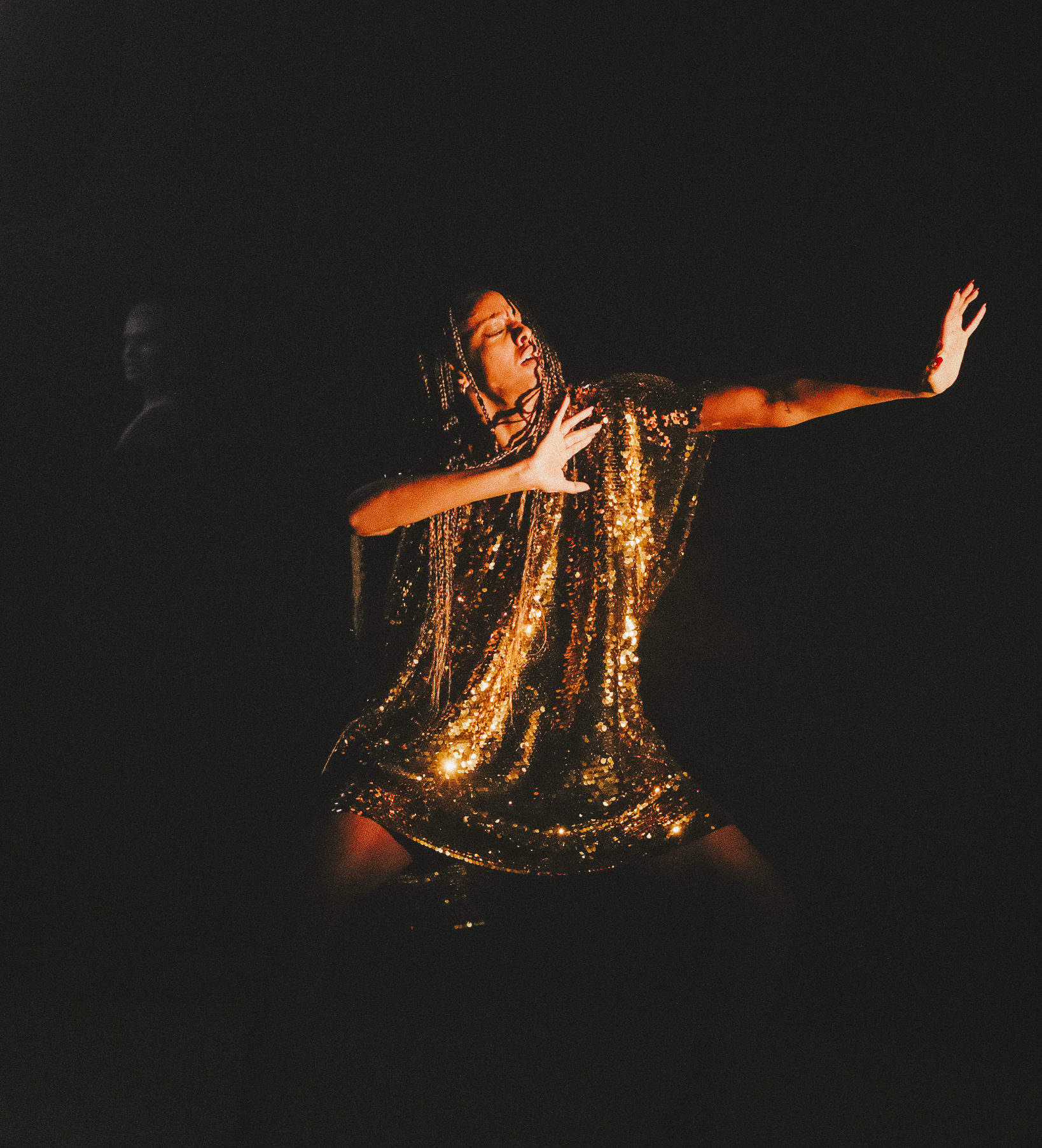Join our Programme Assistant Joséphine Gram as she takes a moment to reflect on experiencing Sonya Lindfors‘ ONE DROP for the second time – this time at Beursschouwburg in Brussels, as part of her Svenska kulturfonden internship at the Finnish Cultural Institute for the Benelux.
« If you walk into Sonya Lindfors’ ONE DROP expecting a gentle dive into contemporary dance, you’re about to be beautifully, politically, and emotionally blindsided. This performance is a decolonial reverie, a space where Blackness confronts the white gaze and tears it apart – then dances on the rubble.
This is the second time I’ve had the pleasure of seeing ONE DROP. And just as I have evolved over the years since I saw it last, so has the performance. Seeing it for a second time was a whole different experience, one that deepened the layers I thought I’d uncovered the first time around. The first time I saw it, the performance left me buzzing with all the emotions I didn’t even know were lying dormant. But coming back to it, already familiar with its beats and movements, I found myself less in awe of the spectacle and more tuned into its subtleties.

ONE DROP cast members Senna Vodzogbe, Kamilla Halid, Isabella Shaw, Geoffrey Erista and Alen Nsambu.
The first time felt like a revelation – being confronted with the raw power of Blackness and the intersections of identities (not to mention the all-black cast!!) in ways I hadn’t seen on a Finnish stage. The second time around though, seeing it here in Brussels, it felt like coming home. I found myself being able to focus on the quiet moments between the bigger gestures. I noticed how the performers, in their stillness, communicated just as much as they did in their movements. ONE DROP gives Blackness space to breathe. And I mean that literally and figuratively. The performers unapologetically took up space. In moments of stillness, they simply existed, breathing heavily after long sequences of intense movement. It was such an emotional reminder that we, as Black people, are so often denied the right to just be. The performers’ agency, and their refusal to cater to the white gaze wasn’t just a rebellion, it was more like an invitation. An invitation for us to see our experiences reflected, validated, and celebrated in ways that mainstream culture so often denies us.
The performance not only confronts white supremacy, but goes into the intersections with capitalism and the commodification of Black and Brown bodies. I found myself reflecting on how often we as BIPOC are expected to assimilate, to shrink ourselves and to package our pain for white consumption. In ONE DROP the narrative of the white gaze is in many ways reclaimed. It felt almost like a private moment for us, by us, a place where we could exist outside of the expectations placed upon us.

ONE DROP cast member Maele Sabuni performing at Beursschouwburg in Brussels.
Lindfors has created a space where Blackness thrives, beyond the limitations of western coloniality, patriarchy and capitalism. Black bodies are centered, in a world where they are so often erased or commodified. Lindfors isn’t afraid to make the audience uncomfortable, especially those who benefit from these systems. ONE DROP isn’t just for the audience, it feels like an exploration and reparation for the performers as well.
It doesn’t dwell on individual tragedies, instead it gives space for collective acknowledgement. We are all a part of this system, whether we want to or not. And it’s in this silent, collective understanding that we realize – we carry that history, that exhaustion, but still, we rise. This performance is a reminder that survival is a form of resistance in itself. We find ways to breathe and live despite the constraints.

Cameroonian-Finnish choreographer Sonya Lindfors mid-performance.
ONE DROP isn’t a passive experience. It’s a demand for engagement, for reflection, and for us who walk through life navigating systems of oppression, it’s a release. The performers on stage are saying what so many of us feel but rarely get the space to express: we exist beyond the narrow definitions of white supremacy. We thrive, we dream, and we deserve better. ONE DROP is a reclamation of our bodies, our histories, and our futures. By the end of the show, I felt in many ways relieved. The performance leaves you with a glimpse of what the future could be. A future where we dismantle these systems of oppression and build something better – something rooted in community, joy, and freedom. It’s not just a performance, it’s a call to action, a reminder that liberation is possible, even if it’s not here yet. »
Sonya Lindfors’ ONE DROP at Beursschouwburg in Brussels was co-produced by the Finnish Cultural Institute for the Benelux. Following its Brussels debut, the performance will be staged at Kampnagel in Hamburg on 25 and 26 October, in collaboration with the Finnland-Institut in Berlin. Both events are part of the pARTir initiative, an EU-funded NextGenerationEU project that promotes responsible international mobility in the arts.
Photos by Yohannes Henriksson.

